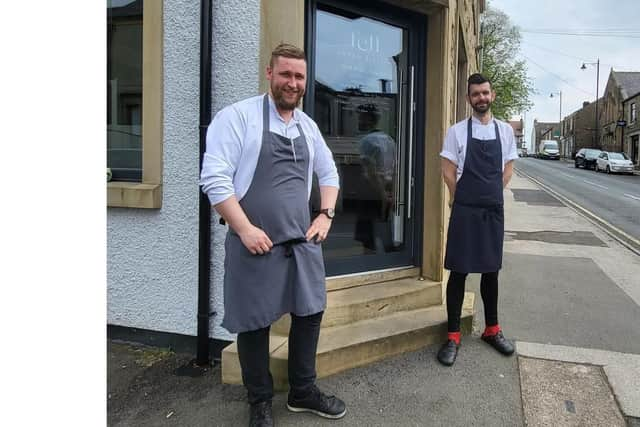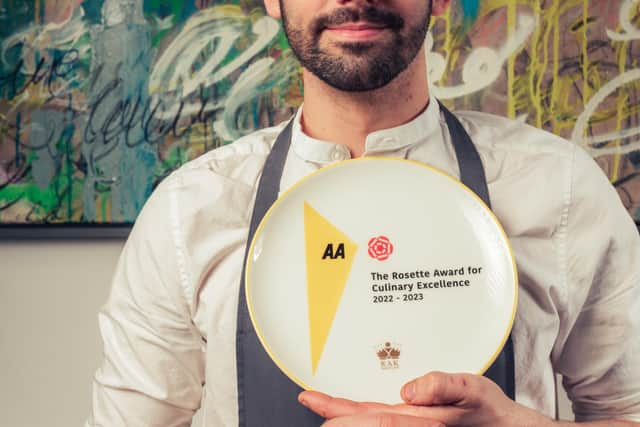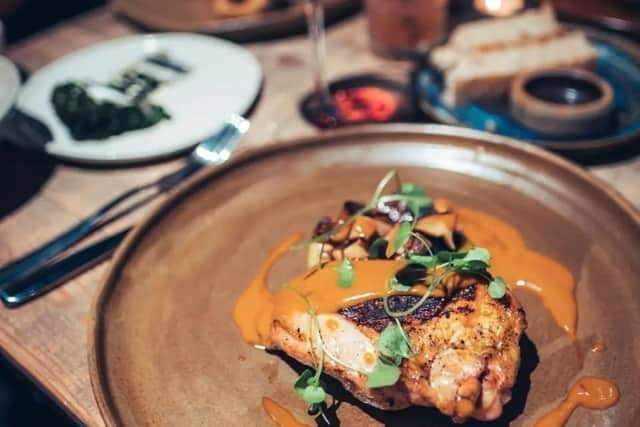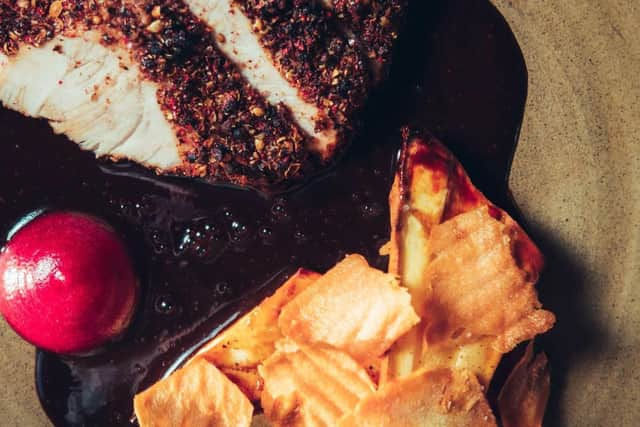Lancashire Artisan Foods: Top chefs on why artisan food makers are essential in creating award-winning dishes
and live on Freeview channel 276
We sat down with Sean Wrest and Brett Thornton, two award-winning Lancashire chefs, as they discuss the explosion of smaller artisan food producers in Lancashire, and why it's so important for restaurants and their customers to have high-quality local produce on their menus.
Introducing the Chefs


Sean Wrest, Executive Chef for Fell Bistro and 263, began his career at Darlington College where he his first professional kitchen job was working for Roux Scholar Jonathan Harrison at the Sandpiper Inn.
Advertisement
Hide AdAdvertisement
Hide AdAs Head Chef of Roots in York, Sean led the team to win their Michelin Star in 2021 – York’s first ever star. Sean has also worked at two 3* restaurants; the incomparable Fat Duck in Bray, Berkshire, and Maaemo in Oslo, Norway. Alongside working in some fantastic kitchens, Sean has won various awards himself including Staff Canteen ‘One to Watch’ 2020 and an Acorn Award in 2021.
Sean now parts his time between Fell Bistro and 263, working with the kitchen teams to develop new ideas and meeting with local suppliers to find the best of Lancashire’s produce.
Brett Thornton, Head Chef for Fell Bistro, was born and bred in Lancashire. Brett’s first professional kitchen was the Michelin-starred Northcote Manor in Langho, Blackburn. His boss, Chef Warrick Dodds, inspired him to open Stanley House in Mellor.


Having always stayed loyal to Lancashire, Brett met Sean Wrest in 2022, where together they led the new restaurant to a AA Rosette for Culinary Excellence.
Advertisement
Hide AdAdvertisement
Hide AdWhat’s happening with Lancashire’s food movement at the moment? Has there been a noticeable shift?
Sean: “There is definitely a food revolution in Lancashire. There are so many good restaurants. As a county I think the food scene here is incredible, it’s just amazing. Its so exciting as a chef, all these places opening up, everyone is inspiring each other with ideas, technique, everyone’s promoting each product their using.”
How important are the local suppliers in creating the quality of meals you want to serve to your customers?


Brett: “I think it is massively important, as long as we keep it local, it keeps everyone happy and it keeps people in jobs. We go to Goosnargh for chickens, Crafty’s, suppliers in Morecombe and the lakes, we try and keep everything in the North-West.”
Sean: “It’s so inspiring, when you can see the passion and hard-work that goes into everything they do, it resonates with us chefs because that’s the same with us. We want to produce the best dish we can produce, and we can only do that with our suppliers.”
Tell us about the difference between locally sourced produce from artisan makers to chain-bought goods.
Sean: “I think the biggest thing is with buying local you’re obviously supporting local businesses, and we’re a local business ourselves, so we need that support back. Using small-scale suppliers like Wyreside Mushrooms, Paul over there has started in the last few years and we’re trying to support him whether it’s lion’s mane that we’re buying, we’ve used it on the menu here and we’re looking to use it in a dish at 263. What you do is build up that relationship with people, he comes in really passionate and you can see this passion in the product as well. So if we can use the passion in our dishes, it works both ways, and you’re also supporting eachother because he’ll come in here and sell us his mushrooms and then hopefully come and eat.
Advertisement
Hide AdAdvertisement
Hide Ad

“if we get a potato from just down the road, we’re getting the best off them because we have created that relationship. Whereas if we get a potato from Japan or Spain, there is no common ground, if there is a problem we’re just another cog in the wheel, they’re not going to directly deal with us.
Does using local suppliers that people recognise and know encourage repeat custom?
Sean: “Definitely. The amount of people who come to the pass and say ‘oh do you use Goosnargh chicken? Do you get gin from there?’, ‘oh my cousin works for that company’. It’s that local kind of spirit, if we weren’t using local companies there wouldn’t be that conversation. It excites people now. There’s been a massive change in the past five years, people want restaurants to be using local goods and they want the community to be supported. Because there are so many businesses going under, we’ve realised people don’t want mediocre, everything is going up in price there’s no way round it. But it means everyone wants quality.”
Watch the full interview here.